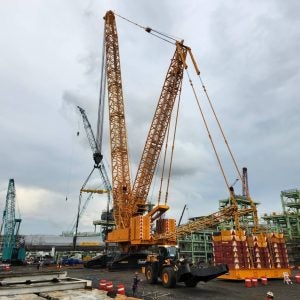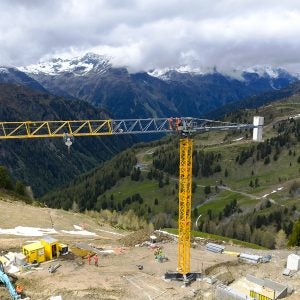Columbus McKinnon has announced plans to close its chain manufacturing operations in Cobourg, Ontario, Canada and consolidate them into facilities in Tennessee and Mexico.
The company said rationalising chain production would cost a one-off $1.6m but would save $2.1m a year in operational costs.
‘Chain manufacturing consolidation is another major step in Columbus McKinnon’s strategic plan,’ said president and CEO Timothy Tevens.
‘The consolidation process is expected to be completed by May 2003, following an orderly integration of chain manufacturing production into Columbus McKinnon’s chain manufacturing facilities located in Lexington, Tennessee, and Santiago Tianguistenco, Mexico. We will work with our affected associates to assist them with positions in other Columbus McKinnon locations and, for those who do not relocate, will provide severance and outplacement support,’ he said.
Tevens added that Columbus McKinnon would continue to serve the Canadian market with its warehouses in Cobourg, Ontario and Edmonton, Alberta. ‘Our Canadian sales force will remain fully intact and we remain committed to serving our valued customers in Canada as we have in the past with our high quality products, delivered on-time at a competitive price.’
Changes to chain production are part of a wider review of operations that has already brought the closure of the Yale Hoist manufacturing facility in Forrest City, Arkansas and the Lister Bolt & Chain plant in Richmond, British Columbia. Annual pre-tax cost savings resulting from these closures are approximately $8.5m, the company said.
In addition to rationalisation, Columbus McKinnon has adopted ‘lean manufacturing improvement activities’ at 15 of its facilities.
‘We are pleased with our lean manufacturing implementation progress to-date,’ said Tevens, ‘and we are realising measurable results in improving productivity, reducing inventory, and freeing-up manufacturing space, while simultaneously improving our customer service. We also look forward to realising additional financial benefits from our lean initiative as we continue the implementation in fiscal 2003 and 2004.’






